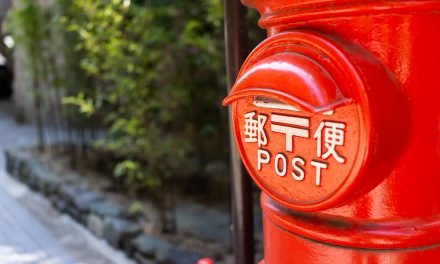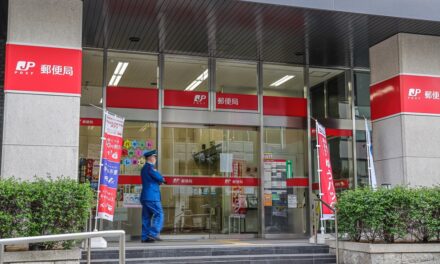
Japan Post eyes global deliveries: Corporation starting up Singapore service ahead of privatization in 2007
Traditionally focused on the domestic market where it enjoys a monopoly on mail services, Japan Post is turning its attention to overseas businesses, preparing to expand in the global market. It aims to become a major player in the world transport business after it is privatized in 2007.
The corporation plans to start by the end of this month its first international transport business, in partnership with Sankyu Inc., a major transport company. The service will be located in Singapore and import/deliver personal computer peripherals to consumers in Japan.
In another overseas initiative, Japan Post President Masaharu Ikuta met in June with Liu Andong, director of China's Postal Bureau, in Beijing, to propose that Japan and China cooperate in a mail service to increase the postal business between the two countries.
The two stopped short of signing an agreement, due partly to hesitation on the Chinese side. But Ikuta's visit paved the way for deepening relations between the postal authorities in the two countries, sources said.
Declining at home
Behind Japan Post's emerging interest in overseas operations is the diminishing domestic mail market.
The number of ordinary postal items, such as letters and postcards, mailed domestically dropped 3.3% year on year to 24.8 billion pieces last fiscal year, after peaking in fiscal 2001. The figure is expected to continue to decline at an annual rate of 2-3% in years to come, partly because of the rapid spread of e-mail via cell phone handsets.
Meanwhile, the international transport market is being increasingly dominated by a few, giant enterprises earning trillions of yen in annual sales each, most of which have boosted their operations through mergers and acquisitions.
Making full use of land, sea and air transport, they boast the ability to deliver all types of goods from letters to huge plant facilities.
"Currently, there is no single Japanese transport company that can compete against United Parcel Service Inc. (UPS) of the U.S. or DHL, affiliated with Deutsche Post AG, on the global market," Teruo Wakasa, director of Sagawa Express Co. told a government meeting held in mid-July.
The Big Four – UPS, DHL, Federal Express of the U.S. and TNT Post Group of the Netherlands – have now set their sights on the Asian market, said analysts.
Given that the two European companies were born from the privatization of state-run postal services, Japan Post's Ikuta, who once headed Mitsui O.S.K. Lines Ltd., a leading shipping company, makes no secret about his ambition to make the company global, arguing, "It should be in the national interest for Japan Post to be in a close race with overseas rivals."
Deutsche Post, a role model for Japan Post, entered the global market on the back of excess profits from the domestic market where it monopolizes the delivery service for letters weighing 100 grams or less.
Dominant mail
Aiming to join the Big Four in the international arena, Japan Post is pressing ahead with reinforcing the domestic business to keep its lead after it is privatized.
For instance, the entity is strengthening a service to deliver noncorrespondence mail, mostly catalogs and brochures, for private-sector home delivery service companies. In February, it enhanced its discount system for the service, offering a maximum 81% rate cut for large orders.
Currently, Sagawa Express, Nippon Express Co. – the largest general transport company – and Chuetsu Transport Co., among others, use the service in which these firms collect such mail and Japan Post delivers them to households.
The service is designed to tap the non-correspondence mail segment, which is growing rapidly in contrast to the dwindling letter delivery service. Japan Post aims to thwart the challenge from Yamato Transport Co., the nation's top parcel home-delivery service provider with its own collection and delivery network, before privatization.
But Naoki Tanaka, an economist and president of the 21st Century Public Policy Institute, argues that the Japanese public does not want the post office to engage in international businesses.
Japan Post looks intent on keeping its control of the domestic market, supported by its unrivaled nationwide network, in a bid to establish a presence in the global market, analysts said. The strategy appears to deviate from the original purpose of the postal services' privatization, which was designed to improve the efficiency of the Japanese economy, however, they added.
The success of the privatization of the postal services rests on how to balance the two "national interests" – the interest of consumers and the international competitiveness of the service.
Copyright (c) Nikkei (Nihon Keizai Shimbun, Inc.) All Rights Reserved












